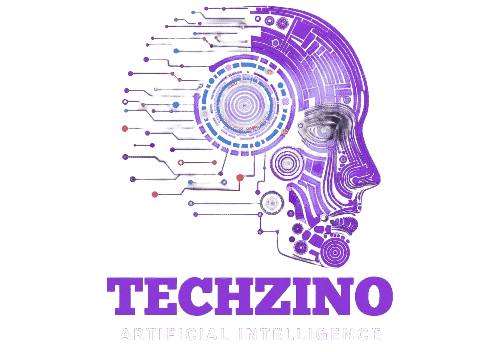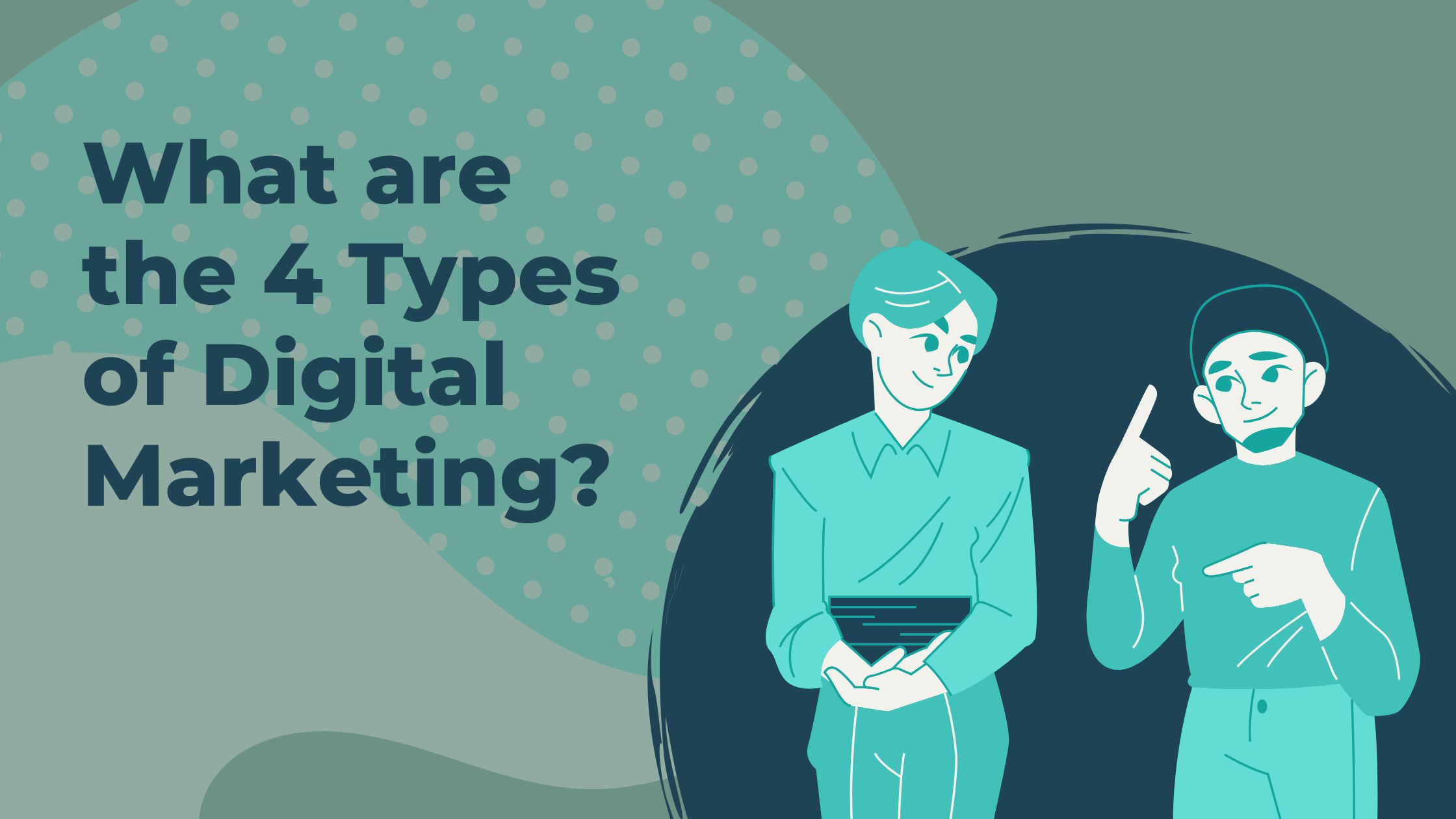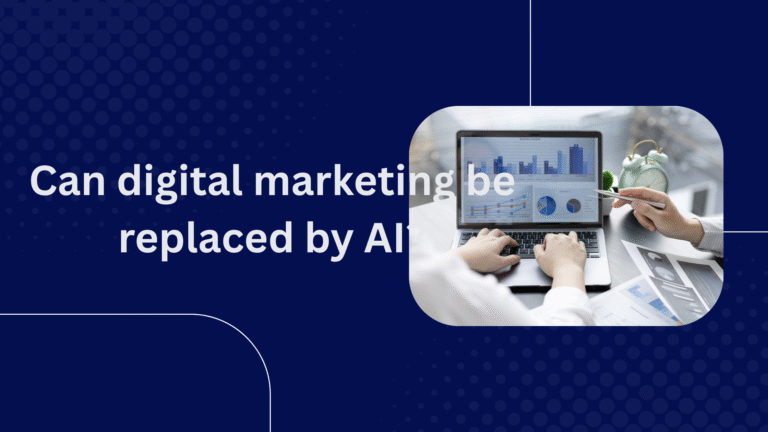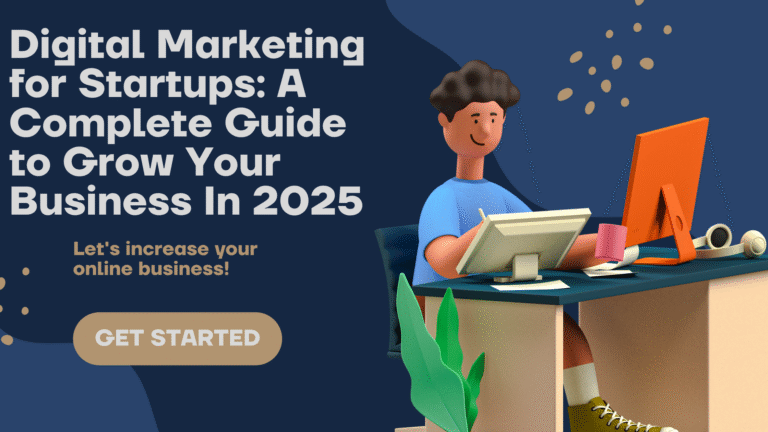What are the 4 Types of Digital Marketing?
In today’s digital-first world, businesses of all sizes are leveraging the power of the internet to reach their customers, drive engagement, and increase sales. That’s where digital marketing comes in. Whether you’re a student, entrepreneur, or marketing professional, understanding the different types of digital marketing is essential for success. And if you’re planning to enroll in a digital marketing course, this is one of the first topics you’ll come across.
So, what exactly are the 4 types of digital marketing? Let’s explore each one in detail and understand how they contribute to a successful digital strategy.
Table of Contents
1. Search Engine Marketing (SEM)
Search Engine Marketing is one of the most powerful and popular types of digital marketing. It involves promoting websites by increasing their visibility in search engine results pages (SERPs), primarily through paid advertising.
How SEM Works:
When you search for something on Google, you’ll notice the first few results are often marked as “sponsored.” These are paid ads created through platforms like Google Ads. Businesses bid on keywords relevant to their products or services and pay a fee every time someone clicks on their ad—this is known as pay-per-click (PPC) advertising.
Why It Matters:
- Instant visibility on search engines
- Highly targeted traffic
- Easy to track and measure ROI
Example:
A local bakery running ads for the keyword “birthday cakes near me” is using SEM to attract customers ready to buy.
What You’ll Learn in a Digital Marketing Course:
- How to set up Google Ads campaigns
- Keyword research and bidding strategies
- Writing compelling ad copy
- Conversion tracking and analytics
2. Content Marketing
Content Marketing focuses on creating and distributing valuable, relevant, and consistent content to attract and engage a clearly defined audience. Instead of directly promoting a product, this strategy educates or entertains the target audience to build trust and loyalty.
Types of Content:
- Blog posts
- Infographics
- E-books
- Videos
- Webinars
- Case studies
Why It Matters:
- Builds brand authority and trust
- Improves organic traffic through SEO
- Nurtures leads through the sales funnel
Example:
A software company publishing a blog titled “10 Productivity Hacks for Remote Teams” is using content marketing to attract potential users of its productivity tools.
What You’ll Learn in a Digital Marketing Course:
- Content strategy and planning
- SEO writing techniques
- Blogging platforms like WordPress
- Tools like Grammarly, Canva, and SEMrush
3. Social Media Marketing (SMM)
Social Media Marketing is the use of platforms like Facebook, Instagram, LinkedIn, and Twitter to promote a brand, engage with followers, and drive traffic to a website.
Platforms You’ll Use:
- Facebook & Instagram – Great for B2C businesses
- LinkedIn – Ideal for B2B marketing
- YouTube – For video marketing
- Twitter & Pinterest – For niche audiences
Why It Matters:
- Direct interaction with customers
- Cost-effective promotions
- Builds community and loyalty
- Increases brand visibility
Example:
An online fashion store running a giveaway on Instagram to promote its new summer collection is using SMM to drive engagement.
What You’ll Learn in a Digital Marketing Course:
- Creating engaging social content
- Running paid ad campaigns on Facebook & Instagram
- Social media analytics and tools like Meta Business Suite
- Influencer marketing strategies
4. Email Marketing
Email Marketing remains one of the most effective digital marketing channels, despite being one of the oldest. It involves sending emails to a list of subscribers to promote products, share news, or offer value through helpful content.
Types of Emails:
- Newsletters
- Promotional campaigns
- Welcome series
- Abandoned cart reminders
- Re-engagement emails
Why It Matters:
- High ROI (average of $42 for every $1 spent)
- Personalized and direct communication
- Easy to automate and scale
Example:
An eCommerce store sending a discount code to customers who haven’t made a purchase in a while is using email marketing to re-engage them.
Why Should You Learn These 4 Types in a Digital Marketing Course?
If you’re serious about growing a business, boosting your career, or becoming a digital marketing expert, understanding these 4 core types is non-negotiable. A good digital marketing course will not only explain the theory but also give you hands-on experience in using real-world tools and creating live campaigns.
Here’s what a quality course typically includes:
- Practical assignments
- Certification upon completion
- Mentorship from experienced marketers
- Access to premium tools and platforms
- Resume and portfolio building support
Whether you’re a college student, job seeker, freelancer, or business owner, a digital marketing course opens doors to numerous opportunities in today’s competitive digital space.
Final Thoughts
The world of digital marketing is vast, but starting with these four core types—Search Engine Marketing, Content Marketing, Social Media Marketing, and Email Marketing—will give you a strong foundation. As you dive deeper, you can explore other areas like influencer marketing, affiliate marketing, mobile marketing, and more.
If you’re looking to gain hands-on knowledge and launch a successful career, consider enrolling in a digital marketing course that covers all these areas and equips you with the skills to thrive in the digital world.




